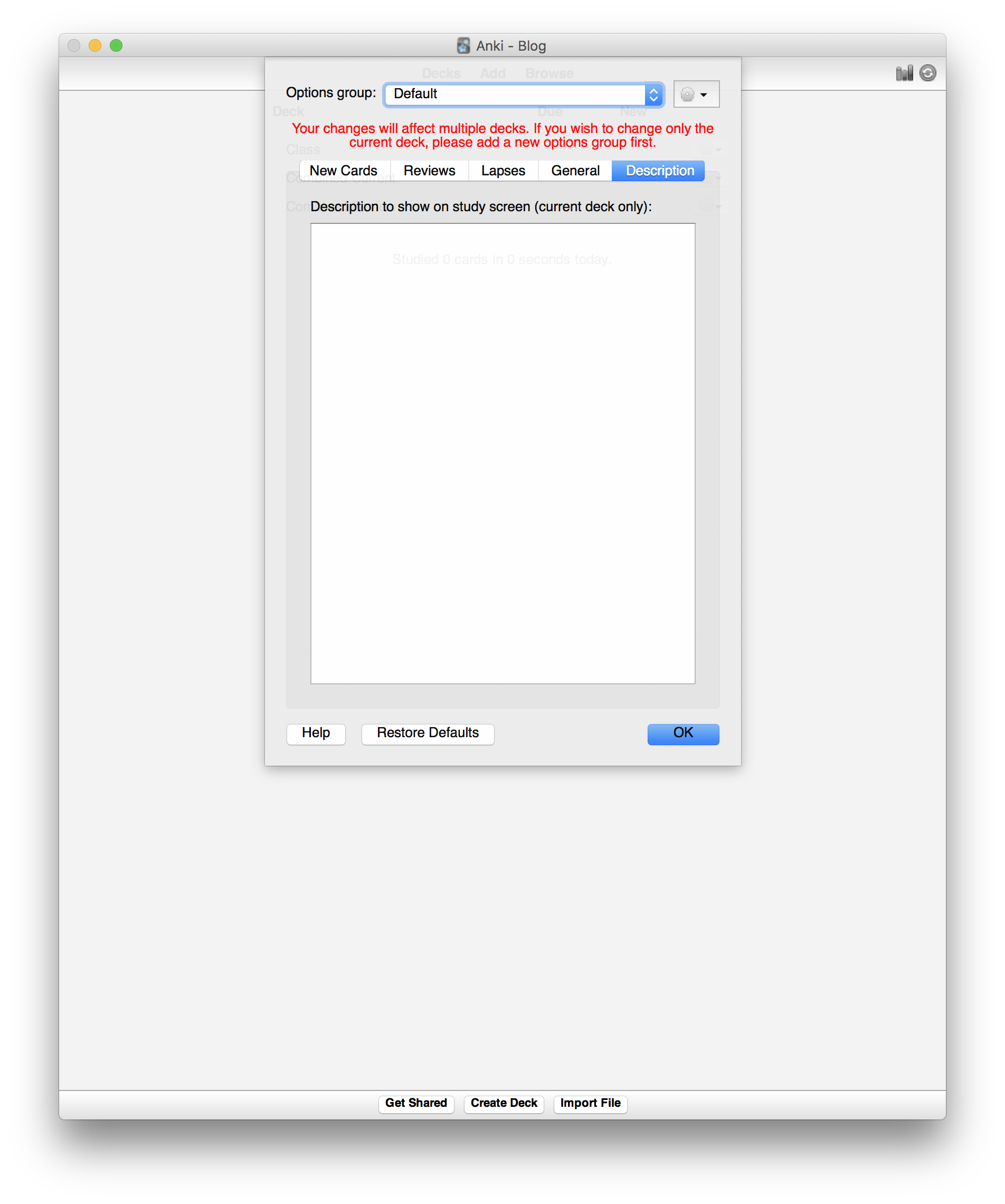

The default export options are generally fine, but you can alter them if you need to.For the deck that you wish to export, click the black down-arrow next to the gear icon.You should get a popup that says “104 cards imported” (or whatever number of cards were in that deck).To import a deck into Anki, do the following: zip file, and you’ll need to extract that (right-click > extract) in order to get to the. apkg format (if you download any of mine, it’ll come as a. Importing Anki FlashcardsĪnki decks are in. a) Export format: Anki Deck Package (.apkg) b) Include: All Decks c) Include scheduling information: YES (Check the box) d) Include media: YES (Check the box) These settings are important because it ensures that all your Anki decks and files, including your images and sounds, will all be saved and backed up.

This quick guide describes the process using the desktop version on Anki.
#Ankiapp export how to#
It's not officially affiliated with the Anki project but seems to have a cleaner and more well-documented API, in addition to a more liberal licence.I’ve decided to share some of my Anki decks and I realize that people, and I want to make sure that everyone who is interested in downloading them also knows how to import them. When using the API, it's also helpful to be familiar with some of the basic concepts: Genanki The official documentation isn't comprehensive, but I've also documented it a little bit myself: At the moment the Fluent Forever products are built for the open source Anki application from which syncs to the servers. I don't think that you can upload Fluent Forever Trainers into AnkiApp. The official Anki python API is documented here: The AnkiApp is similar in concept to the regular Anki, but I believe it uses different platforms. # Save and export the collection to an Anki package (.apkg) fileĮxporter = AnkiPackageExporter(collection)Įxporter.exportInto('/path/to/test.apkg')) Importer = TextImporter('/path/to/test.csv')) # Import cards from CSV into the new collection # Create a new deck in the collection (otherwise the "Default") deck will be usedĭeck_id = ('Deck name')

Here's a very basic example to import from CSV and export a deck to an Anki package (.apkg) file: import ankiįrom import TextImporterĬollection = anki.Collection('/path/to/test.anki2'))
#Ankiapp export install#
To build on gavenkoa's answer, the Anki API has built-in functionality to import from CSV.įirst of all, you can install the anki Python package using pip, e.g.
#Ankiapp export update#
Note = (collection, model)Īs long you keep note.guid and model the same, you can import the DB and update cards without losing progress! Model = 12345678 # essential for upgrade detection Next, log into your AnkiWeb account on the newly installed Anki app on. Then click ‘Sync (hronize)’ and wait until the syncing is complete. Be sure to check the ‘sync sounds/audio & images’ option so that the audio also syncs. Then you can adapt the following example to your needs: import ankiįrom anki.exporting import AnkiPackageExporterĬollection = anki.Collection(os.path.join(TMPDIR, 'collection.anki2'))ĭeck_id = (FBASENAME + "_deck") After you have registered your AnkiWeb account, sign in on your device with your deck (s) in the settings menu. Extend: PYTHONPATH=/usr/share/anki: python.

apkg files is by programmatically reusing the desktop version with Python.


 0 kommentar(er)
0 kommentar(er)
